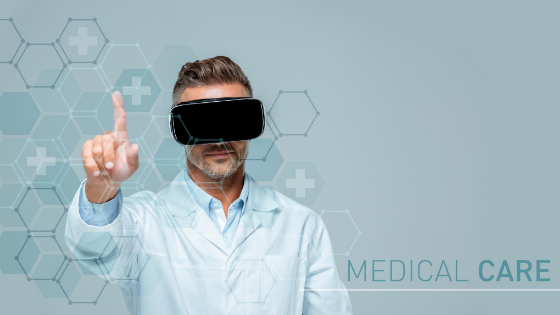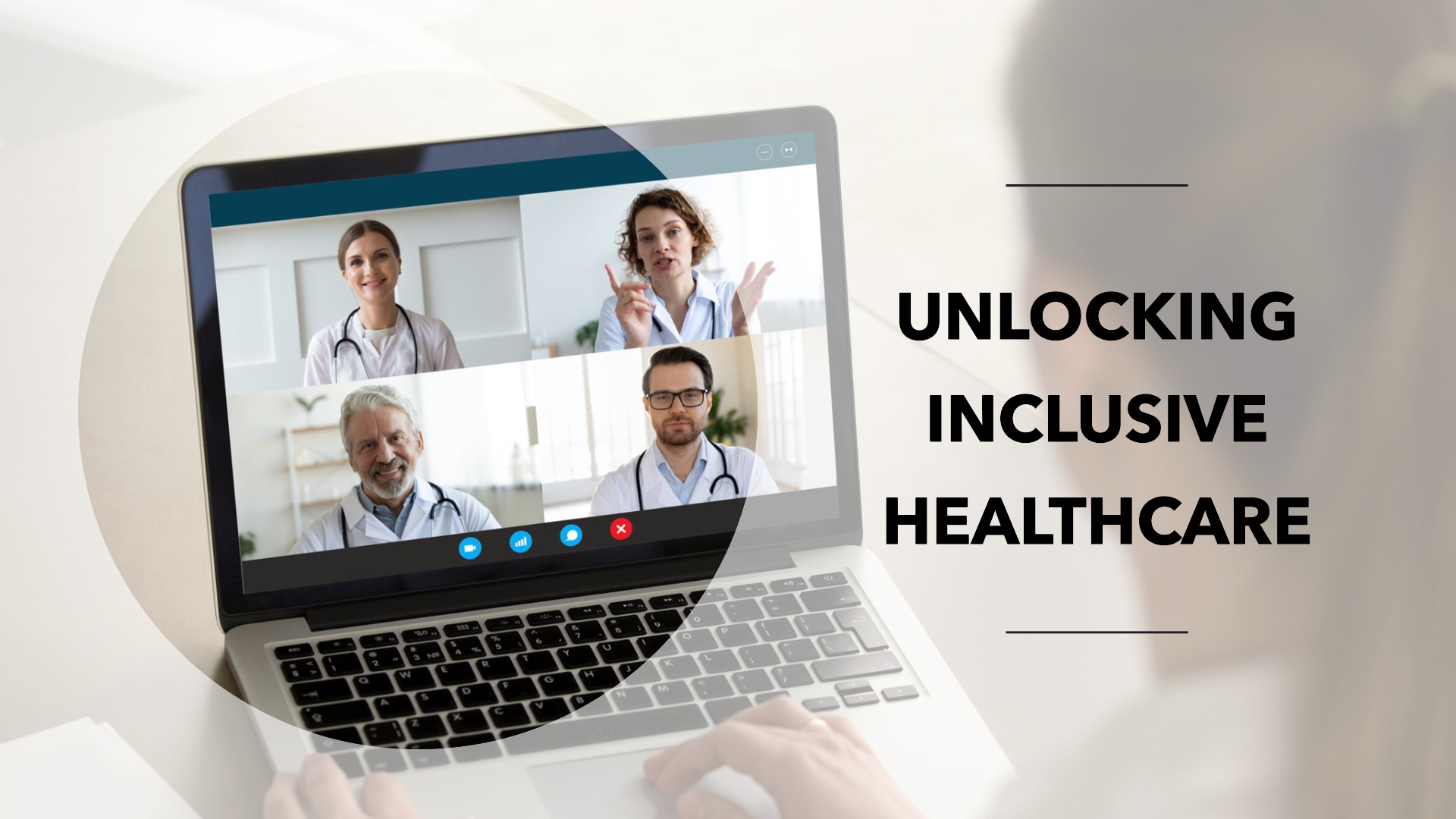When we think about the potential of artificial intelligence in healthcare, we have to acknowledge that it is only recently that this technology has become a reality. Since the inception of AI, healthcare professionals have been using it in their daily workflow to improve patient care and ultimately save lives. This is a very exciting time for leaders in healthcare and physicians who are looking to capitalize on this opportunity.
What is Artificial Intelligence in healthcare? What kind of impact can AI have on the future of healthcare? As leaders in the healthcare industry, these questions should be at the forefront of your mind. Physicians are looking to capitalize on this opportunity and make their jobs easier while also improving patient care.
Artificial intelligence in healthcare is becoming more of a reality every day. Many people are unaware that artificial intelligence is already being used across the country to improve patient care and help save lives. In recent years artificial intelligence has become more of a reality, and healthcare professionals have been taking advantage of this opportunity to make their practices even better.
It’s important to note that AI is not a replacement for physicians, but rather an enhancement of their practices.
Challenges for hospital CIOs and physicians
Artificial Intelligence (AI) is a digital technology that helps computers perform tasks that are more human. It involves using algorithms to use a broad range of data to make decisions and solve problems, such as recognizing faces.
Recent advances in AI and machine learning have made it possible for computers to perform tasks better than humans, including detecting certain diseases like cancer, or diagnosing complex medical conditions.
The goal of the technology is to improve treatment and care, not replace physicians. Artificial intelligence is being used in many different areas today—from driverless cars to automatic personal assistants—to help people live longer and healthier lives.
One of the most promising uses of AI is in healthcare, where doctors can use it to make diagnoses faster, improve patient care and reduce costs. In one post from Forbes, healthcare experts describe the need for hospital CIOs and physicians to consider how their jobs can be improved by using artificial intelligence (AI). They also consider how advances over the last decade have made it possible for hospitals and physicians to drive down costs without disrupting services or quality.
Artificial Intelligence and Healthcare: A match made in heaven?
Artificial intelligence has the potential to radically change healthcare. The benefits and risks of artificial intelligence as a technology are not yet clear, but in the meantime we can explore four trends that may help us understand how AI will impact this area. So the four trends that will shape AI in Healthcare are:
- Technology is moving at a rapid pace. We’re seeing rapid changes in how organizations work with technology, and in how they interact with their customers. This is a good thing, it means organizations are growing more comfortable using new technologies, and it also means they’re becoming more efficient at managing their workflow processes. AI’s capabilities in healthcare are broad and range from clinical to business intelligence. Ai is a natural fit for big data, social collaboration, patient engagement, knowledge management, machine and deep learning…and so much more. With a flexible approach to development, Artificial Intelligence can be applied across the healthcare continuum.
- There’s also an increased risk of automation introducing error into the supply chain and potentially harming business operations (in this case, healthcare). The health care industry is at an inflection point. The aging population, technological advances and new healthcare models offer immense opportunities for improvement. But technology’s increasing role in the supply chain creates a risk of automation introducing error and harming business operations.
- Artificial intelligence is already being used to help with some areas of medicine that have traditionally been considered “artificial” (such as childbirth). However, there is room for improvement, it would be helpful if artificial systems could help doctors better learn about a patient’s condition so they can provide treatment or preventative care. AI is already being used in the medical community to help with issues such as diagnosing cancer and predicting outcomes of surgery. But it can be difficult to access AI tools. In order for AI to make its way into the healthcare sector, it should be easier for doctors to access these tools so they can make more educated decisions about their patients.
- In addition to helping clinicians learn more about a patient’s health, artificial intelligence could also help improve their efficiency by making some of their tasks easier and less time-consuming. These systems could analyze medical datasets and automatically perform important steps to improve outcomes for patients. If we think about the healthcare context in which we’re using artificial intelligence or machine learning, it is really about helping clinicians learn more about a patient’s health and using that information to take better care of them. What do I mean by that? I mean reducing pain and suffering, improving outcomes, and making us healthier as a society. What are three main initiatives under this umbrella? First, building tools that can automatically detect disease signs in medical images like CT scans and X-rays with higher accuracy than clinicians can. Second, coming up with methods that can detect early signs of disease, such as detecting cancer through an analysis of blood test results and getting treatment to occur earlier. Third, doing pattern recognition on large datasets so that if the same disease showing up in multiple patients we can figure out why at the molecular level…
How AI is being used in healthcare now
The use of artificial intelligence (AI) in healthcare has been largely driven by how it can help patients, but what are the limits of AI? And what is the future of AI in healthcare? There are few trends in artificial intelligence (AI), including:
- The value of AI-based decision support to improve clinical decisions
- The role of AI in diagnostics and preventive services
- The importance of continuous improvement on how to further optimize AI systems
- How AI can be used to help inform end-of-life decisions and shifting from traditional care towards more direct and personalized care
Needless to say, these are all trends that can have significant impact for healthcare leaders, as well as for clinicians who want to use or run their own fields. For example, it was recently announced that a physician at Dartmouth-Hitchcock Medical Center will be the first person to receive a Level III clinical trial with an artificial intelligence system that will assist him in his daily practice. With it, he has access to all his patient records on a secure cloud so they are accessible via mobile devices while he is seeing them. This will allow him not only to process their files, but also perform tests using machine learning algorithms. The result is he will be able to detect problems before they become acute and thus avoid complications or even death. In fact, one study found that use of digital health applications within mental health clinics has led to an increase in patients receiving care and improving outcomes for both themselves and their families.
With such tremendous progress being made with artificial intelligence (AI), there’s no doubt that this technology can also have significant impact on healthcare providers as well as patients and their families. But what’s clear is there is still much work ahead before we can fully optimize everything we currently do with AI, especially when it comes down to how we actually use it. Below are some important questions you should ask yourself when looking at whether or not you want your organization to invest heavily into AI:
- Is your current staff capable enough?
- Are they up on new technologies like machine learning?
- Can they teach themselves? If not, then how much time do you need them?
- Is your organization going to need developers or must you bring them into your team immediately?
- What kind of results do you expect?
- Is the investment in Artificial Intelligence beneficial for your patients and clinicians?
I was inspired to write this article after my conversation with our board member Tatyana Kanzaveli – CEO at Open Health Network. We talked about AI, big data and patient centricity in healthcare. Tatyana Kanzaveli also shared incredible insights and experiences from other industries, where the healthcare industry can learn lessons from.
Watch Episode #28 of Digital Health & Wearables Series:
Contact us for more relevant details. To find out more about how we can help you with your Digital Healthcare Transformation, Healthcare organizational growth, or Healthcare brand positioning, please get in touch via phone +44 (0) 203 3620421 or via e-mail: info@digitalsalutem.com





